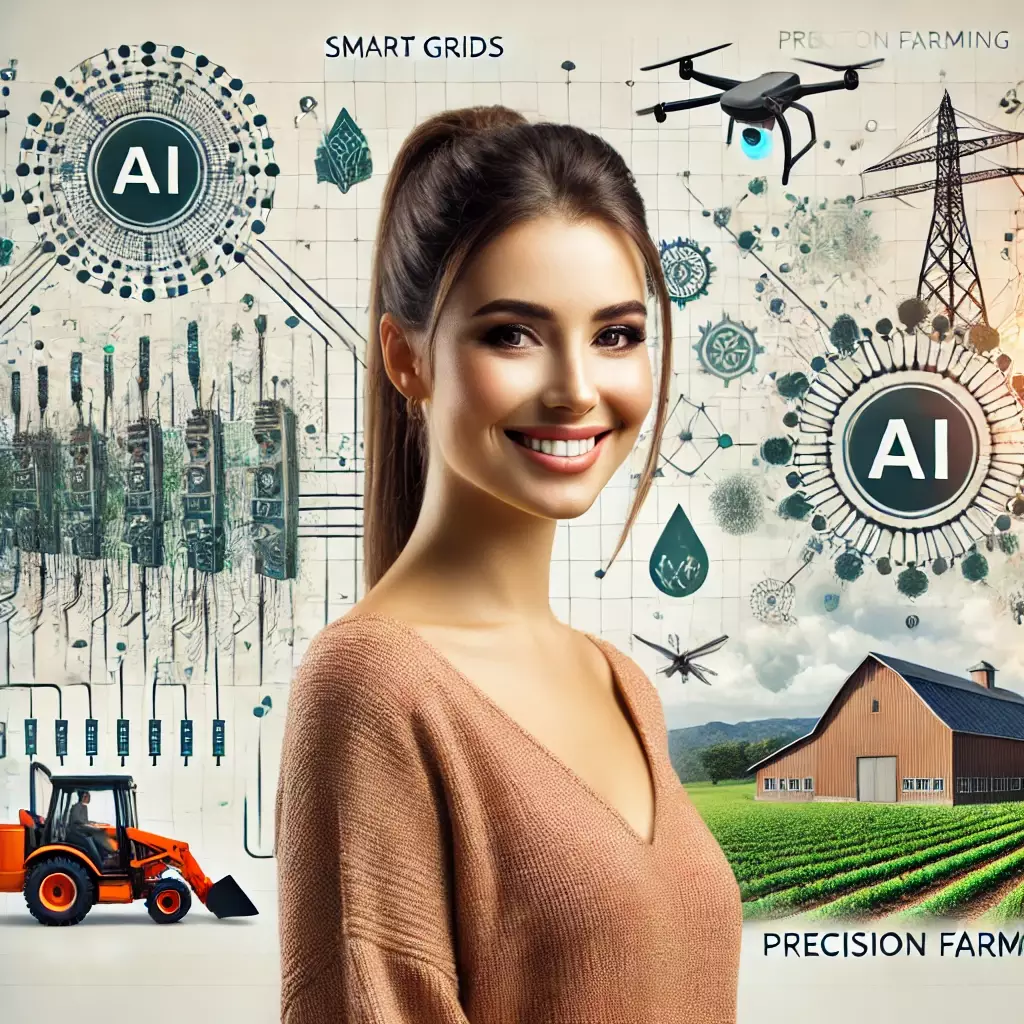In an era where sustainability is becoming increasingly critical, artificial intelligence (AI) is emerging as a powerful tool to drive significant advancements in sustainable technology. AI’s ability to process vast amounts of data and generate actionable insights is being leveraged across various industries to optimize energy consumption, reduce waste, and enhance overall sustainability. This article explores how AI is being used to promote sustainability, its impact on different sectors, and the potential challenges and future directions.
AI in Energy Optimization
One of the primary ways AI is advancing sustainable technology is through energy optimization. AI algorithms can analyze large datasets to identify patterns and inefficiencies in energy usage, enabling more efficient energy management. For instance, AI-driven smart grids can balance supply and demand in real-time, reducing energy waste and enhancing the reliability of power systems.
Key Phrase: Energy Optimization Using AI
- Smart Grids: AI-powered smart grids adjust energy distribution based on consumption patterns, minimizing energy loss and integrating renewable energy sources more effectively.
- Predictive Maintenance: AI algorithms predict equipment failures in energy systems, allowing for timely maintenance and reducing downtime, which in turn saves energy.
Waste Reduction through AI
AI technologies are also being applied to reduce waste in various industries. By improving process efficiency and enabling better resource management, AI helps minimize the generation of waste and promotes recycling and reuse.
Key Phrase: Waste Reduction Using AI
- Manufacturing: AI-driven predictive analytics can optimize production processes, reducing material waste and enhancing product quality. For example, companies like Siemens are using AI to refine their manufacturing processes, leading to significant waste reduction.
- Supply Chain Management: AI can optimize logistics and inventory management, reducing waste due to overproduction and spoilage. AI models predict demand more accurately, ensuring that supply matches demand.
AI in Environmental Monitoring
AI plays a crucial role in environmental monitoring and management. By analyzing data from various sensors and satellite imagery, AI can monitor environmental changes and predict natural disasters, helping to mitigate their impact.
Key Phrase: Environmental Monitoring with AI
- Climate Change Modeling: AI algorithms analyze climate data to create accurate models of climate change, helping scientists understand and predict its effects. These models are essential for developing strategies to combat global warming.
- Wildlife Conservation: AI-powered drones and camera traps monitor wildlife populations and their habitats, aiding conservation efforts by providing valuable data on animal behavior and ecosystem health.
AI in Sustainable Agriculture
Agriculture is another sector where AI is making a significant impact. By optimizing farming practices and improving resource management, AI promotes sustainable agriculture.
Key Phrase: Sustainable Agriculture with AI
- Precision Farming: AI algorithms analyze soil data, weather patterns, and crop health to provide farmers with precise recommendations on irrigation, fertilization, and pest control. This targeted approach reduces resource usage and increases crop yields.
- Supply Chain Transparency: AI enhances transparency in agricultural supply chains by tracking and verifying the origin of products. This helps ensure sustainable practices are followed throughout the supply chain.
Statistical Data on AI and Sustainability
The impact of AI on sustainability can be illustrated with some statistical data:
| Sector | AI Application | Impact |
|---|---|---|
| Energy | Smart Grids | 10-15% reduction in energy wastage |
| Manufacturing | Predictive Maintenance | 20-25% reduction in production waste |
| Agriculture | Precision Farming | 15-20% increase in crop yields |
| Supply Chain Management | Demand Forecasting | 30-40% reduction in inventory waste |
Challenges and Future Directions
While AI offers immense potential for advancing sustainable technology, it also faces several challenges:
- Data Privacy and Security: The use of AI requires access to large amounts of data, raising concerns about data privacy and security. Ensuring robust data protection measures is crucial.
- High Costs: Implementing AI technologies can be expensive, especially for small and medium-sized enterprises. Reducing the cost of AI adoption is essential for widespread implementation.
- Algorithmic Bias: AI systems can sometimes exhibit biases based on the data they are trained on. Ensuring that AI models are fair and unbiased is critical for their successful application.
Despite these challenges, the future of AI in sustainable technology looks promising. Continued advancements in AI algorithms, increased availability of data, and growing awareness of sustainability issues are likely to drive further innovations in this field.
Conclusion
Artificial intelligence is playing a transformative role in advancing sustainable technology. By optimizing energy consumption, reducing waste, and enhancing environmental monitoring, AI is helping various industries become more sustainable. As we continue to face global sustainability challenges, the integration of AI technologies will be crucial in developing innovative solutions and promoting a greener future.




